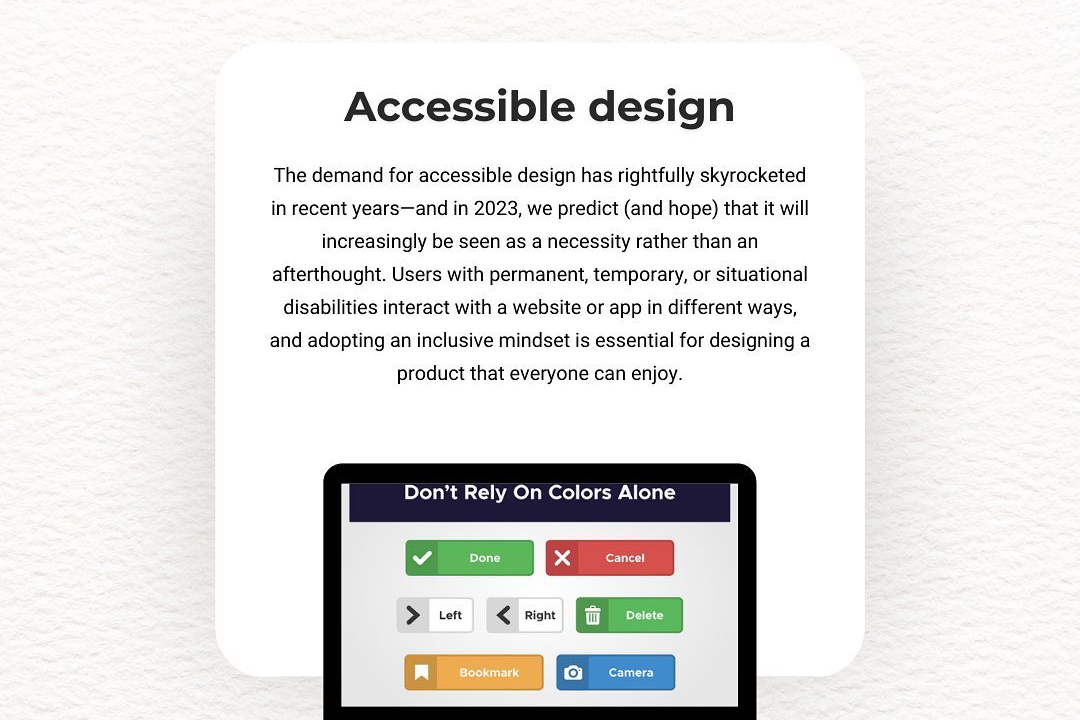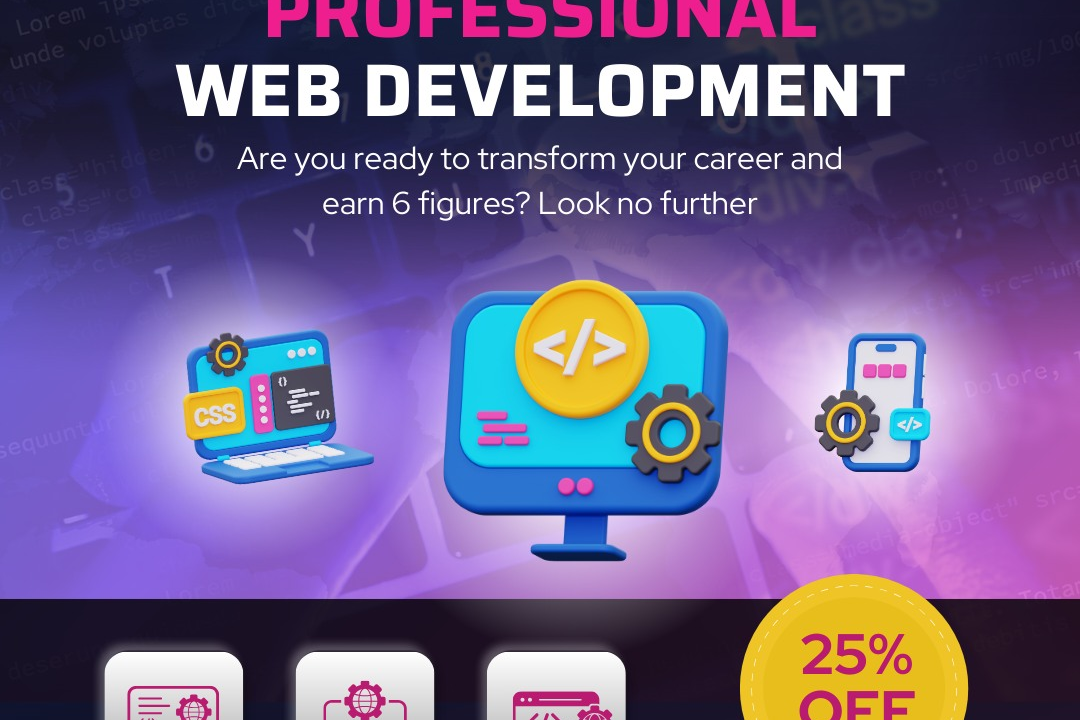Free Selenium Course
JustAcademy's Free Selenium Course is a comprehensive training program tailored for beginners and as
Free Selenium Course
JustAcademy's Free Selenium Course is an ideal starting point for individuals looking to master test automation and enhance their career prospects in software testing. By offering in-depth insights into Selenium WebDriver, automation frameworks, and real-world project scenarios, the course provides practical skills that are highly valued in the industry. It enables learners to build a strong foundation in automation testing, making them proficient in developing automated test scripts, reducing manual testing efforts, and delivering high-quality software. This free course is a valuable resource for beginners aiming to kickstart their journey in automation testing without any initial investment.
To Download Our Brochure: https://www.justacademy.co/download-brochure-for-free
Message us for more information: +91 9987184296
JustAcademy's Free Selenium Course is an ideal starting point for individuals looking to master test automation and enhance their career prospects in software testing. By offering in depth insights into Selenium WebDriver, automation frameworks, and real world project scenarios, the course provides practical skills that are highly valued in the industry. It enables learners to build a strong foundation in automation testing, making them proficient in developing automated test scripts, reducing manual testing efforts, and delivering high quality software. This free course is a valuable resource for beginners aiming to kickstart their journey in automation testing without any initial investment.
Course Overview
JustAcademy's Free Selenium Course offers a comprehensive introduction to test automation, covering Selenium WebDriver, scripting, and real-world projects, providing learners with practical skills to automate tests efficiently and enhance their testing careers.
Course Description
The Free Selenium Course by JustAcademy provides a foundational overview of Selenium WebDriver, automation scripting, and real-time project experience, equipping learners with essential skills to automate web testing efficiently and kickstart their career in test automation.
Key Features
1 - Comprehensive Tool Coverage: Provides hands-on training with a range of industry-standard testing tools, including Selenium, JIRA, LoadRunner, and TestRail.
2) Practical Exercises: Features real-world exercises and case studies to apply tools in various testing scenarios.
3) Interactive Learning: Includes interactive sessions with industry experts for personalized feedback and guidance.
4) Detailed Tutorials: Offers extensive tutorials and documentation on tool functionalities and best practices.
5) Advanced Techniques: Covers both fundamental and advanced techniques for using testing tools effectively.
6) Data Visualization: Integrates tools for visualizing test metrics and results, enhancing data interpretation and decision-making.
7) Tool Integration: Teaches how to integrate testing tools into the software development lifecycle for streamlined workflows.
8) Project-Based Learning: Focuses on project-based learning to build practical skills and create a portfolio of completed tasks.
9) Career Support: Provides resources and support for applying learned skills to real-world job scenarios, including resume building and interview preparation.
10) Up-to-Date Content: Ensures that course materials reflect the latest industry standards and tool updates.
Benefits of taking our course
Functional Tools
1 - Selenium WebDriver: Selenium WebDriver is the core tool used in our free Selenium course. It allows students to automate web browsers by simulating user interactions like clicking buttons, entering text, and navigating through pages. Our training covers how to set up WebDriver with different browsers such as Chrome, Firefox, and Edge, enabling students to create robust automation scripts. We teach best practices for script design, debugging, and maintaining automation frameworks, which are essential skills for any aspiring automation tester. The focus is on building a solid foundation in browser automation to handle real world testing scenarios effectively.
2) Eclipse IDE: Eclipse Integrated Development Environment (IDE) is widely used for writing, debugging, and managing Selenium test scripts. In our course, students learn how to configure Eclipse for Java development, which is the primary language used in Selenium automation. We guide them through creating projects, organizing code, and utilizing Eclipse’s debugging tools. This familiarity helps students develop and execute their scripts efficiently, providing a professional environment for coding. Understanding Eclipse's features ensures that students are prepared to work smoothly in real world testing projects.
3) Java Programming Language: Java is the main programming language covered in our Selenium course because of its stability, scalability, and widespread adoption in automation testing. We introduce students to Java fundamentals such as variables, control structures, object oriented concepts, and exception handling. This foundational knowledge enables students to write reliable, reusable, and maintainable test scripts. Our training emphasizes writing clean code, which is crucial for working in collaborative development environments and maintaining long term automation projects.
4) TestNG Framework: TestNG is a testing framework that facilitates designing, organizing, and executing test cases efficiently. Our course teaches students how to set up TestNG, create test suites, and implement various annotations for parallel execution, data driven testing, and reporting. Using TestNG, students can run multiple test cases systematically, generate detailed reports, and improve test management. Mastering TestNG helps learners automate their testing workflows and integrate with other tools like Jenkins for continuous integration.
5) Maven: Maven is a build automation tool used for managing project dependencies and automating build processes. In our training, students learn how Maven simplifies managing different libraries involved in Selenium automation. They understand how to configure Maven POM files, organize project modules, and automate the setup of testing environments. Knowledge of Maven allows students to create scalable, reproducible, and maintainable automation projects, making collaboration and version control easier.
6) Git and GitHub: Version control is essential for managing code changes and collaborating in teams. Our course introduces Git as the primary tool for version control and GitHub as a platform for hosting repositories. Students learn commands for cloning, committing, pushing, and branching code, fostering best practices for code management. Using Git and GitHub, learners can track changes, review code histories, and work collaboratively on automation projects, which is vital for professional growth.
7) Jenkins: Jenkins is an open source automation server used for Continuous Integration/Continuous Deployment (CI/CD). The course teaches students how to set up Jenkins jobs to automate test execution, build processes, and report generation. By integrating Selenium scripts with Jenkins, students learn how to enable rapid feedback loops, improve testing efficiency, and facilitate timely software releases. Jenkins skills are highly valued in the industry for maintaining high quality, fast paced development cycles.
8) Browser Drivers: Browser drivers like ChromeDriver, GeckoDriver, and EdgeDriver are essential components that enable Selenium WebDriver to interact with different browsers. Our training provides detailed instructions on downloading, configuring, and using these drivers to control browser actions. Students understand how to update drivers, troubleshoot common issues, and ensure compatibility across browsers, which is crucial for comprehensive cross browser testing.
9) Other Supporting Tools: The course also covers auxiliary tools such as Selenium Grid for parallel test execution across multiple machines, Allure Reports for generating detailed test reports, and WebDriverManager for automatically managing driver binaries. These tools enhance automation efficiency, reporting accuracy, and cross platform testing capabilities, giving students a broader understanding of industry standard testing ecosystems.
10) Testing Frameworks Integration: Besides TestNG, the course introduces integration with other frameworks such as JUnit and Cucumber for Behavior Driven Development (BDD). This helps students learn how to structure tests, write human readable scenarios, and implement keyword driven testing. Understanding multiple frameworks broadens their skill set and prepares them to handle diverse testing requirements in various project environments.
11 - Selenium Grid: Selenium Grid enables parallel test execution across multiple browsers and platforms, drastically reducing testing time. Our course illustrates how to set up and configure Selenium Grid, allowing students to run large test suites simultaneously in distributed environments. This knowledge is essential for scaling automation efforts and ensuring consistent test coverage across diverse hardware and browser configurations, aligning with enterprise testing needs.
12) Cross Browser Compatibility Testing: We focus on teaching students how to perform cross browser testing using Selenium, ensuring that web applications work seamlessly across different browsers and devices. This involves configuring tests to run on multiple browsers via Selenium Grid or cloud services like BrowserStack and Sauce Labs. Mastering cross browser testing is critical for delivering a uniform user experience and identifying browser specific issues early in the development cycle.
13) Test Data Management: The course covers methods for managing test data dynamically using tools like Apache POI for Excel data handling, or external data sources like CSV, JSON, and databases. Proper test data management helps in creating data driven tests, making automation scripts more flexible and reusable. This skill ensures that learners can design tests that adapt to various input scenarios and real world data variations.
14) Automation Framework Design: We guide students through designing scalable and maintainable automation frameworks from scratch, including Page Object Model (POM), Data Driven, and Hybrid frameworks. This strategic approach improves test code readability, reduces duplication, and simplifies maintenance. Building such frameworks equips students with industry standard practices for professional automation development.
15) Handling Dynamic Web Elements: Many modern web applications have dynamic content that changes asynchronously. The course teaches techniques such as explicit and fluent waits, Ajax handling, and JavaScript execution to interact with dynamic elements reliably. This expertise helps prevent test flakiness and increases test stability across complex web pages.
16) Pop up and Alert Handling: Automating interactions with browser alerts, confirmation boxes, and modal windows is crucial for comprehensive testing. Our training demonstrates methods to detect and handle these pop ups efficiently, ensuring your automation scripts can manage user prompts correctly during test execution.
17) File Uploads and Downloads: Students learn how to automate file upload and download processes within web applications using Selenium. This includes handling file dialogs, interacting with local file systems, and verifying downloaded files, which are common requirements in real world testing scenarios.
18) Locating Web Elements: The course covers various strategies for locating web elements, such as ID, name, class, XPath, CSS selectors, and more advanced techniques like relative locators. Effective element location is foundational for reliable test scripts, especially in complex or evolving web interfaces.
19) Debugging and Troubleshooting: We emphasize troubleshooting techniques to identify and fix common issues like element identification failures, synchronization problems, and driver errors. Building troubleshooting skills ensures students can maintain their automation suites with minimal downtime and quickly resolve test failures.
20) Automation Test Reports and Logging: The course trains students on generating detailed test execution reports using frameworks like TestNG, Allure, or Extent Reports, along with implementing logging for debugging purposes. Well structured reports and logs improve test transparency, facilitate analysis, and support continuous improvement of automation scripts.
21 - Cloud Integration for Testing: Students explore cloud based testing platforms such as LambdaTest, Sauce Labs, or BrowserStack. Integration with these platforms allows for expansive testing across multiple environments without extensive local infrastructure, enhancing test coverage and reducing setup time.
22) Security and Best Practices: Emphasis is placed on writing secure, efficient, and reliable automation scripts by avoiding hard coded data, implementing waits properly, and handling exceptions gracefully. Adhering to best practices ensures professional quality automation projects and smoother collaboration within teams.
23) Continuous Learning and Industry Trends: Our courses include updates on emerging tools, industry standards, and best practices in automation testing. Encouraging ongoing learning prepares students to stay current with evolving technologies and maintain a competitive edge in the job market.
24) Real Time Project Implementation: Throughout the course, students work on live projects that replicate real industry scenarios. This hands on experience cultivates problem solving skills, project management abilities, and confidence in deploying automation solutions in professional environments.
25) Certification Preparation: We prepare students for industry recognized certifications such as ISTQB, Certified Selenium Tester, or other relevant credentials, enhancing their credibility and employability in the automation testing field.
By mastering these comprehensive topics and tools, learners are equipped to excel in modern automation testing roles, delivering high quality, scalable, and maintainable test solutions aligned with industry standards.
Browse our course links : https://www.justacademy.co/all-courses
To Join our FREE DEMO Session: Click Here
This information is sourced from JustAcademy
Contact Info:
Roshan Chaturvedi
Message us on Whatsapp: +91 9987184296
Email id: info@justacademy.co












